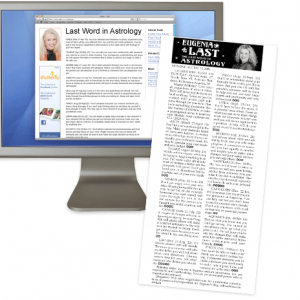‘Orange Is the New Black’ in the New China
Browse MoreDescription
The face of the “New China” is Guo Meimei, an attractive woman in her early 20s whose rise and fall embodies many uncomfortable aspects of modern Chinese life. Until recently, she was generating a strong following on social media for her tweets highlighting her extravagant and licentious lifestyle. This week, instead of a smiling face flashing designer fashion accessories and bragging about her latest excursion, Chinese television viewers were treated to footage of Guo in tears, wearing a distinctly unfashionable orange prison uniform and apologizing to her fellow citizens for her moral failings.
Although the Cultural Revolution, which tore China apart during the later years of Mao Zedong’s reign, is for most purposes left undiscussed in the misty recess of the collective Chinese memory, Guo’s televised “self-confession” seemed intentionally orchestrated to remind viewers of this turbulent period.
Guo admitted to acting as a high-priced call girl after having been linked to an illegal gambling ring. In addition to prostitution, she was allegedly involved in efforts to launch an unlicensed casino, and she amassed massive personal debts while playing poker. Her bragging tweets had generated a sizable following on Weibo, China’s equivalent of Twitter, but Guo quickly became a symbol of excess to many.
Her connections to a group orchestrating massive amounts of betting on this summer’s World Cup proved to be her undoing. Although apps permitting small-stakes gambling on smartphones have skyrocketed in popularity recently, China still has very strict laws prohibiting high-stakes gambling. However, this did not stop Guo from tweeting about the large bets she was making. A police raid resulted in her arrest, together with eight other individuals linked to the gambling ring.
Her problems, however, go back to 2011. She first attracted widespread notoriety for damage that she did to the Red Cross Society of China, one of the oldest charities in the country. Although she had no relationship with the group in any way, she claimed to be employed in a senior role at the “Red Cross Chamber of Commerce” and at the same time posted pictures of her expensive jewelry and her high-end sports car. Soon, a group of online activists began a campaign to highlight the potential corruption that Guo was apparently exploiting.
Needless to say, donors were not amused. Unhappy with even the mere allegation, untrue as it might be, that Guo was in some way associated with the Red Cross, donors stopped making donations, and fundraising dropped precipitously. Much time and public relations effort have been spent rebuilding the charity’s reputation and repairing the damage that this fictional association inflicted on the Red Cross.
The gap between rich and poor is growing in China, opening up a social chasm generating envy and anger. This bitterness found in Guo an acceptable target, and she became subject to a persistent online attack. Eventually, she was forced to admit that there was no such company as the “Red Cross Chamber of Commerce.” It soon turned out, however, that her boyfriend did in fact have links to the Red Cross, through an actual subsidiary known as the Red Cross China Business System.
It has been reported that the push this week to televise Guo’s tearful confession came from the upper echelons of the government. Whether it was to highlight the success of President Xi Jinping’s anti-corruption drive or distract Chinese viewers from the other problems the country is facing — and there are several — the Guo broadcast certainly made for memorable television.
In a country where corruption is still widespread and undermining the “economic miracle” that has until recently succeeded in transforming many aspects of China over the past three decades, the drama surrounding the rise and fall of Guo is only a very small piece of a very big problem. On the one hand, it demonstrates that the ability to generate C-list celebrities through social media self-promotion and the simultaneous attraction to and revulsion from conspicuous consumption on an epic scale appear to be universal. On the other hand, it demonstrates the extent of the challenge facing those in China, both inside and outside the government, who want to clean up a culture that either tolerates or at times outright promotes graft, bribery and dodgy deals.
An encouraging sign can be seen in Weibo and its millions of followers who eagerly pounce on evidence of corruption that leaks out onto the Internet, thereby holding government officials to task. Guo’s Red Cross scandal in 2011 could have been an early end to her news story, but like the challenges still facing China, her story continued on.
Unfortunately, pictures of Guo lying coquettishly on a Maserati are now being replaced by video clips of her tearful face while she’s wearing a standard-issue orange prison jumpsuit.
Timothy Spangler is a writer and commentator who divides his time between Los Angeles and London. His radio show, “The Bigger Picture with Timothy Spangler,” airs every Sunday night from 10 p.m. to midnight Pacific time on KRLA AM 870. To find out more about Timothy Spangler and read features by other Creators Syndicate writers and cartoonists, visit the Creators Syndicate Web page at www.creators.com.







Reviews
There are no reviews yet.